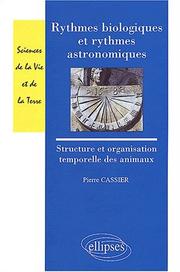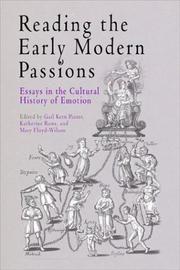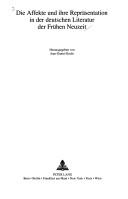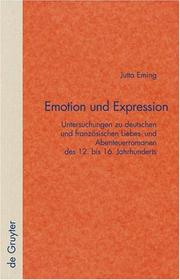| Listing 1 - 10 of 51 | << page >> |
Sort by
|
Multi
ISBN: 9781316272084 9781107109827 9781107525290 Year: 2015 Publisher: New York Cambridge University Press
Abstract | Keywords | Export | Availability | Bookmark
 Loading...
Loading...Choose an application
- Reference Manager
- EndNote
- RefWorks (Direct export to RefWorks)
Thematology --- Hemingway, Ernest --- Emotions in literature
Book
ISSN: 03481433 ISBN: 9789174024470 9174024477 Year: 2017 Volume: 92 Publisher: Stockhlom Kungl. Vitterhets Historie och Antikvitets Akademien
Abstract | Keywords | Export | Availability | Bookmark
 Loading...
Loading...Choose an application
- Reference Manager
- EndNote
- RefWorks (Direct export to RefWorks)
Conferences - Meetings --- Emotions in literature --- Emotions in art --- Philosophical anthropology --- Religious studies

ISBN: 2729810153 9782729810153 Year: 1983 Publisher: Paris: Ellipses,
Abstract | Keywords | Export | Availability | Bookmark
 Loading...
Loading...Choose an application
- Reference Manager
- EndNote
- RefWorks (Direct export to RefWorks)
Thematology --- French literature --- Racine, Jean --- Phaedra (Greek mythology) in literature --- Emotions in literature --- Love in literature --- Tragedy --- Racine, Jean, --- Emotions in literature. --- Love in literature. --- Phaedra --- In literature. --- Racine, Jean, - 1639-1699 - Phèdre

ISBN: 0812218728 0812237609 9780812218725 9780812237603 Year: 2004 Publisher: Philadelphia: University of Pennsylvania press,
Abstract | Keywords | Export | Availability | Bookmark
 Loading...
Loading...Choose an application
- Reference Manager
- EndNote
- RefWorks (Direct export to RefWorks)
History of civilization --- Literature --- anno 1400-1499 --- anno 1500-1599 --- European literature --- Emotions in literature --- History and criticism --- Emotions in literature. --- History and criticism. --- European literature - Renaissance, 1450-1600 - History and criticism --- European literature - 17th century - History and criticism
Book
ISBN: 150360747X 9781503607477 9781503606807 1503606805 9781503615014 1503615014 Year: 2019 Publisher: Stanford, CA : Stanford University Press,
Abstract | Keywords | Export | Availability | Bookmark
 Loading...
Loading...Choose an application
- Reference Manager
- EndNote
- RefWorks (Direct export to RefWorks)
This book recovers the curious history of the "insensible" in the Age of Sensibility. Tracking this figure through the English novel's uneven and messy past, Wendy Anne Lee draws on Enlightenment theories of the passions to place philosophy back into conversation with narrative. Contemporary critical theory often simplifies or disregards earlier accounts of emotions, while eighteenth-century studies has focused on cultural histories of sympathy. In launching a more philosophical inquiry about what emotions are, Failures of Feeling corrects for both of these oversights. Proposing a fresh take on emotions in the history of the novel, its chapters open up literary history's most provocative cases of unfeeling, from the iconic scrivener who would prefer not to and the reviled stock figure of the prude, to the heroic rape survivor, the burnt-out man-of-feeling, and the hard-hearted Jane Austen herself. These pivotal cases of insensibility illustrate a new theory of mind and of the novel predicated on an essential paradox: the very phenomenon that would appear to halt feeling and plot actually compels them. Contrary to the assumption that fictional investment relies on a richness of interior life, Lee shows instead that nothing incites the passions like dispassion.
English fiction --- Emotions in literature. --- Fiction --- History and criticism. --- Psychological aspects. --- Emotions in literature --- History and criticism --- Psychological aspects --- E-books --- Literature --- History of civilization --- English fiction. --- Roman anglais --- Roman --- Histoire et critique. --- Aspect psychologique.
Book
ISBN: 9789038225616 903822561X Year: 2015 Volume: 7 Publisher: Gent: Academia press,
Abstract | Keywords | Export | Availability | Bookmark
 Loading...
Loading...Choose an application
- Reference Manager
- EndNote
- RefWorks (Direct export to RefWorks)
Book
ISBN: 9781107052390 9781107280564 9781107637283 9781139871198 1139871196 1107280567 1107052394 1139699377 1139862421 1139861182 1139865463 1139863320 1139869043 1107637287 Year: 2014 Publisher: Cambridge : Cambridge University Press,
Abstract | Keywords | Export | Availability | Bookmark
 Loading...
Loading...Choose an application
- Reference Manager
- EndNote
- RefWorks (Direct export to RefWorks)
There has recently been a resurgence of interest in the importance of the emotions in Romantic literature and thought. This collection, the first to stress the centrality of the emotions to Romanticism, addresses a complex range of issues including the relation of affect to figuration and knowing, emotions and the discipline of knowledge, the motivational powers of emotion, and emotions as a shared ground of meaning. Contributors offer significant new insights on the ways in which a wide range of Romantic writers, including Jane Austen, William Wordsworth, Immanuel Kant, Lord Byron, Mary and Percy Bysshe Shelley, Thomas De Quincey and Adam Smith, worried about the emotions as a register of human experience. Though varied in scope, the essays are united by the argument that the current affective and emotional turn in the humanities benefits from a Romantic scepticism about the relations between language, emotion and agency.

ISBN: 3906756459 Year: 1996 Publisher: Bern Peter Lang
Abstract | Keywords | Export | Availability | Bookmark
 Loading...
Loading...Choose an application
- Reference Manager
- EndNote
- RefWorks (Direct export to RefWorks)
Emotions in literature --- German literature --- Congresses --- History and criticism&delete& --- Psychological study of literature --- anno 1500-1799 --- History and criticism

ISBN: 9783110185256 3110185253 3110914069 Year: 2006 Publisher: Berlin De Gruyter
Abstract | Keywords | Export | Availability | Bookmark
 Loading...
Loading...Choose an application
- Reference Manager
- EndNote
- RefWorks (Direct export to RefWorks)
Fiction --- Thematology --- Old English literature --- Old French literature --- Emotions in literature --- French literature --- German literature --- Literature, Medieval --- Love in literature --- Romance literature --- History and criticism --- Themes, motives
Book
ISBN: 1501747134 1501747142 9781501747120 1501770128 1501747126 Year: 2020 Publisher: Ithaca, N.Y. Cornell University Press
Abstract | Keywords | Export | Availability | Bookmark
 Loading...
Loading...Choose an application
- Reference Manager
- EndNote
- RefWorks (Direct export to RefWorks)
"Offers a new account of feeling in British Enlightenment literature, showing how writers discreetly evoke a hidden layer of affect that supports and intensifies our strongly felt passions and sentiments"--
| Listing 1 - 10 of 51 | << page >> |
Sort by
|

 Search
Search Feedback
Feedback About UniCat
About UniCat  Help
Help News
News